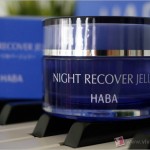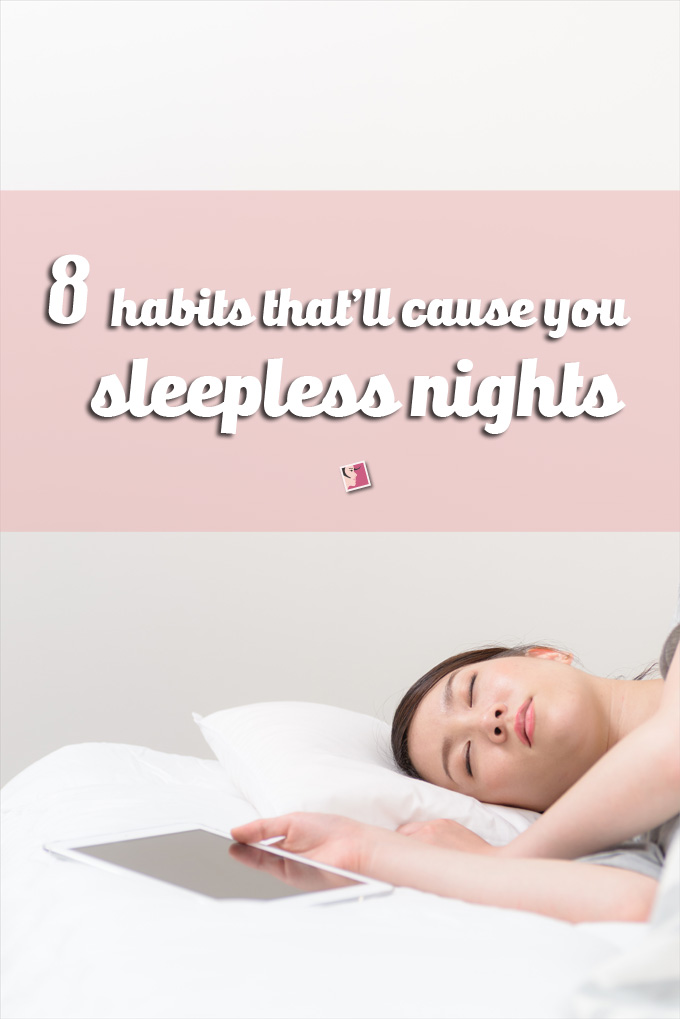
Sleepless At Night? 8 Habits That Are Keeping You Away From Restful Sleep
I could never understand when people tell me they have trouble sleeping. It was something I never knew how to emphasize with.
You see, I am someone who had no problem falling asleep real fast. It didn’t matter whether I was roughing it out in an unfamiliar environment or I was going through some sticky patches, I just had the uncanny ability to sleep at the drop of a hat. Even my son was amused at how quickly I fell asleep whenever I kept him company during bedtime.
But that was then. Now, my sleeping pattern hasn’t been as blissful. Either I’ll struggle to fall asleep or I’ll wake up intermittently during the wee hours not being able to sleep soundly throughout the night. The disruption is exasperating as it affected my daytime routine and alertness. I realized that this cannot go on, so I went about investigating and I think I might have found some reasons for my slumber challenges.
1. Use of electronic devices during bedtime
The culprit it appears is my iPad, which I’ve been bringing to bed for my nightly dose of online entertainment. Apparently, tablets, smartphones and TV with backlit screens emit blue light that mimics daylight, convincing the brain that it is still daytime. Because of this, using such gadgets at night suppresses the body’s production of melatonin, a substance needed by our bodies to help us fall asleep. This stimulates you to stay awake longer than you should.
Researchers at the Lighting Research Centre, at the Rensselaer Polytechnic Institute in New York, are warning that looking at tablet displays for more than two hours “leads to a suppression of our natural melatonin levels as the devices emit optical radiation at short wavelengths†– in other words, they emit bluer light (source).
If you, like me, have been experiencing sleeping disruption due to usage of your electronic devices, try staying away from them at least an hour before bedtime. It’s tough I know but it’s not impossible especially if you want to enjoy better sleep.
2. Drinking too much water before bedtime
Although I knew long ago that drinking too much water causes me to wake up in the middle of the night to visit the toilet, I just can’t stop doing it. The best I can do is to reduce the amount I drink but ideally, I should stop drinking an hour before bedtime too.
Also, drinking water before sleeping can promote puffiness in both your eyes and face. So if you also have this habit and you don’t have a big bladder, you need to stop consuming water an hour before bedtime. The same goes for drinking any other liquids.
3. Drinking too much caffeine before bedtime
Most people drink coffee to stay awake and that’s why you should not be drinking coffee or tea as they contain caffeine that’ll inhibit the activity of a neurotransmitter called Adenosine, which is one of your brain’s natural tranquilizers. Because of that, you will have difficulty falling asleep.
What’s more, caffeine metabolism slows as we get older. Your body can’t process caffeine as efficiently in your forties as it did in your twenties, so the same amount that didn’t bother you then could have an effect now. In addition, caffeine intake increases the need to urinate because it is diuretic. So unless your objective is to stay awake, you should definitely stay away from drinking coffee and tea before bedtime.
4. Eating too much before bedtime
You know how a healthy eating habit really promotes a healthier lifestyle, don’t you? If you have a habit of eating supper, it’s time to stop that routine. Not only will a full stomach keep you awake due to blood sugar fluctuations, it will cause you to put on weight. So stop eating at least two hours before bedtime as your digestive system tends to be more sluggish at night.
But having said that, don’t sleep on an empty stomach either as hunger will also cause you sleeplessness. If you must, drink some warm milk or perhaps eat a small high protein snack.

5. Checking the clock in the middle of night
I don’t know about you but I love checking the time when I am awake in the middle of the night. I feel elated when I realized I have many more hours to sleep but sore when it’s nearer to the time I need to be up. However, it appears that this habit is bad for sleep because by doing that, it keeps my mind alert as I would naturally be mentally calculating the hours I am left with to snooze.
When that happens, I become more anxious, thereby elevating my level of adrenaline and cortisol, hormones that make me feel alert and further disrupt sleep. No wonder there are nights I will just keep waking up every hour to check the time incessantly and end up feeling more lethargic when I am finally awake!
So what’s the best solution to counter this? Stop checking the clock! Just sleep and wait for your alarm to go off. But this is much easier said than done because I still love to check the time whenever I am awake in the middle of the night.
6. Sleeping too early
If you are one who head to bed too early and end up wakeful in the middle of the night, you probably need to adjust your bedtime by sleeping later. This will signal your body that you need more sleep, so that when you do finally go to bed, you’ll conk out sooner and end up sleeping a full cycle.
I know this is true because if I try to sleep like at 10pm, I will end up waking up at 2 or 3am, much earlier than the time I am supposed to be awake. My best bet is to sleep around 11pm and that delayed hour somehow causes me to wake up at my preset time.
7. Inconsistent sleeping hours or sleeping habits
If we are creatures of habit, then having inconsistent sleeping time or habit is naturally damaging to a proper sleeping schedule. I am suddenly reminded of a comedy starring Stephen Chow where he acted as a guy who must sleep by 12am every night. His body functioned in such a way that it will go into sleep mode even when he was held up beyond 12am and it didn’t matter where he was or who was with him. It was hilarious because he would be falling asleep in the middle of a conversation or an activity.
Well, it would be great if our bodies function like that but given that most of us don’t, the best way is to adhere to a regular sleeping time.
Related to this is to keep to a set of regular sleeping habit. This may include taking a warm bath, listening to some soothing music or reading a book to wind down.
8. Napping during daytime
One of the tricks parents use to ensure their kids sleep through the night is to cut down their nap time during the day. Obviously, taking naps keep a toddler more wakeful and the same can be said of adults too.
If you are someone who naps in the day and are having trouble sleeping at night, try to avoid that nap and perhaps that’ll help you doze off quicker at night. But if your nap does not affect your sleep at all, take that siesta by all means!
Seek medical help for insomnia
There are probably more habits that inhibit a restful sleep but these are some I have personally experienced or know of to be true. Do share with us if you know of other habits that disrupts a proper sleeping cycle.
If you are having trouble sleeping well at night, you might want to check if any of these habits are causing you sleepless nights. But if your problem is more serious and you are suffering from insomnia, then please seek medical help from your doctor.
Comments
Leave a Reply
You must be logged in to post a comment.





















Great post!! I totally agree with you!!! ?
Hugs,
Love from http://www.trangscorner.com {a lifestyle, fashion, beauty, and food blog}
Trang Do last post is: All Black Outfit
Oh no, I am guilty of too many of these! Especially Number 1, I have a very bad habit of using electronic devices late at night and keeping them right beside my bed. Thanks for the reminder to put them down!
Rosemond last post is: Stitch Fix Review. Casual Fashion Over 40
Yeah…need to consciously avoid. I’m trying very hard… ?